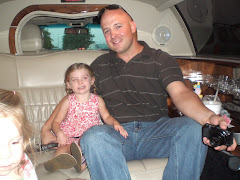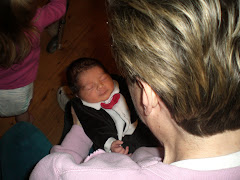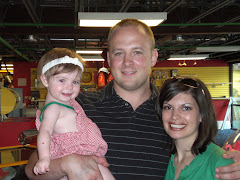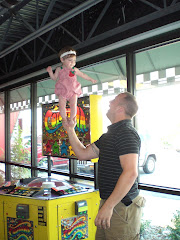This month's entry comes from Reaching Teens in their Natural Habitat by Danny Holland.
Escape the Tunnel Vision, p70-72
When police officers go through a law enforcement academy, much training time is spent learning to handle their firearms. They study shootings and learn the latest techniques for surviving a life-and-death battle. One natural tendency they need to unlearn, though, is tunnel vision. When we're faced with a threat, we automatically direct all available attention and energy to neutralizing that threat. For police officers this presents a serious problem because they must often engage multiple threats simultaneously.
Police officers are trained to fire at their targets and then sweep their eyes to the left and the right before re-holstering their weapons. Why? Because in the past officers were re-holstering their weapons before making sure the scene was clear of other threats. Officers who survived the initial threat but still focused on it even after it was gone were being killed by other threats they never saw. Their tunnel vision kept them from seeing other dangers.
We as parents can fall prey to tunnel vision too. Focused on social influences, peer pressure, and other threats to the moral upbringing of our kids, we wield our parental defensive weapons with tactical excellence. But if we're not careful, we can become so consumed with protecting our sons and daughters that we may ignore the powerful offensive role we must play as a successful life coach. A dominant, defensive survival mind-set tends to react to negative circumstances, influences and events. Parenting from this posture can limit our role as parents to be emergency responders who engage the dangers to our children's future.
When it comes to our kids, no matter what their age, we need to be strategic and intentional rather than just reacting to negative circumstances. I know many kids who create negative situations to foster interactions with their parents. We parents need to find a balance between being proactive and reactive. Ask yourself, "Why am I protecting my son/daughter?" When it comes to convincing our teenagers to avoid behavior that could hurt them or cause them painful regrets, a positive reason can be much more compelling than a negative one.
When I turned fifteen, I participated in an abstinence program called Tru Love Waits. I signed my name on a card pledging that I would not have sex until I was married, and I received a ring from my parents as a reminder of this decision. I have to admit, though, that I thought I would be married by the time I turned eighteen! Twenty-one, twenty-two, twenty-three, twenty-four--the years slowly crept by. What had I been thinking? I began to recall my motivation, envisioning my wedding night, handing the ring to my wife and seeing the look on her face. I knew she would be able to trust me the rest of our lives because I havd been faithful to her before I ever knew her. I knew I would have no regrets, no diseases, no children by other women and no unwanted faces in my mind. At twenty-five I finally walked down the aisle with my wife. In our hotel room on our wedding night, I handed Amanda my ring and said, "Amanda, before I ever knew you, I loved you enough to save myself for you." My dream of what I wanted my marriage to be like kept me pure. Sure, regrets crossed my mind, but the positive vision of my future compelled me to stay on track.
We parents need to intentionally prepare our children and teenagers for their future by both providing a hedge of protection around them in the form of rules, accountability, structure, and giving them powerful reasons for doing the right thing. After all, if a coach prepared his team only to stop the opponent's strong offense, his team would still be defeated. As we coach our children, let's not forget our offensive strategy.
Thursday, April 30, 2009
Subscribe to:
Post Comments (Atom)









No comments:
Post a Comment